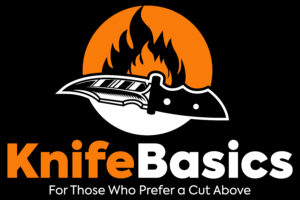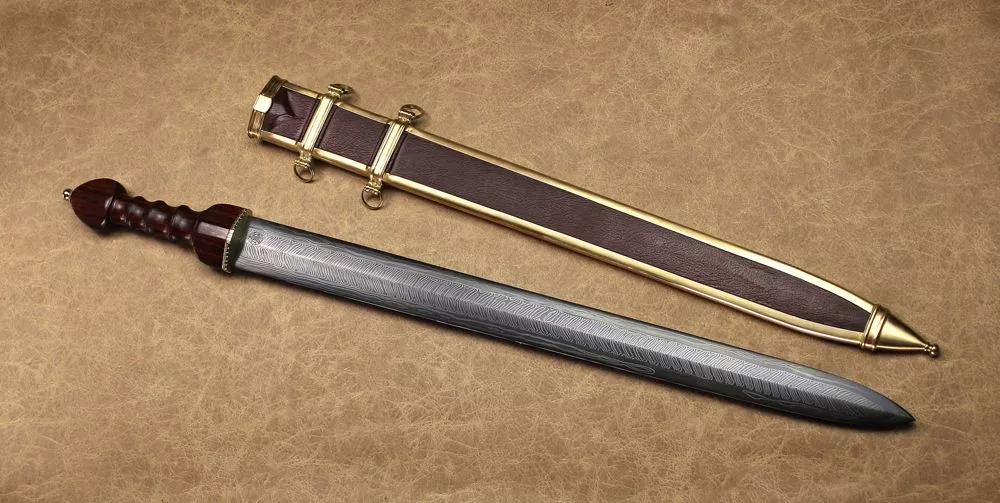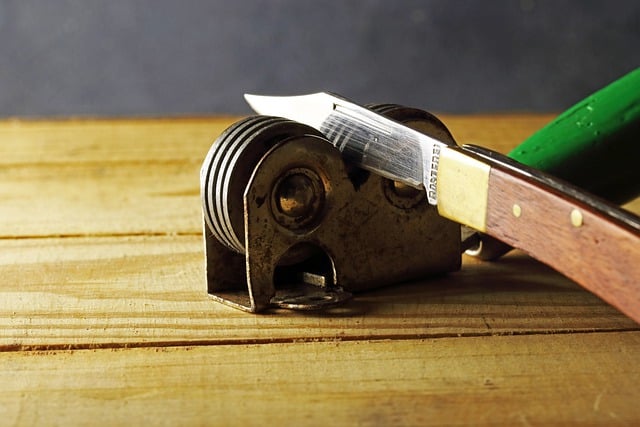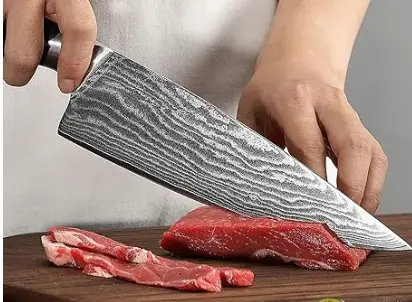What type of steel is 1084 Steel?
It is recommended for beginners in knife making because it is accessible and easy to work with. 1084 steel soaks up heat very fast, even without advanced heat treatment equipment.
1084 does not contain enough chromium and therefore it is not stainless steel, but it offers great hardness and decent toughness.
1084 steel is used to make various types of knives, including kitchen, Everyday Carry, and camping Knives. Because of its excellent toughness, 1084 carbon steel also qualifies for making swords, machetes, and Katanas.
1084 Steel Composition (1084 Steel Chart)
- Carbon C 0.84%: Increases edge retention, hardness, and tensile strength. It also improves steel resistance to wear, abrasion, and corrosion.
- Manganese Mn 0.90%: improves the strength and hardness of steel. When the steel is heat-treated, hardenability is improved with increased manganese.
- Phosphorous P 0.03%: Considered an impurity but may Increase the strength and improves machinability of steel
- Sulfur S 0.05%: Improves machinability but is regarded as an impurity in high quantities.
1084 Steel Properties
1084 Steel Hardness
The hardness of 1084 steel ranges from 50-60HRC depending on the heat treatment used by the knife makers. 50HRC is decent hardness for low-budget kitchen and outdoor knives. However, 1084 carbon steel can hit 60 HRC with high treatment and produce high-quality steel knives.
1084 Steel Wear resistance
1084 steel offers decent wear resistance, a property that enables it to withstand wear and tear with continued use. When used for the right applications and with proper care and maintenance, 1084 carbon steel knives hold on to the original look and shape for a very long time.
1084 Steel Edge Retention
1084 steel offers low edge retention, but it depends on the heat treatment used and the hardness level attained. Its level of edge retention is highly affected by the low amount of carbides present in its alloy composition. Just like other low alloy steel, this is among its areas of low performance.
1084 Steel Toughness
1084 steel features exceptional toughness. The great toughness is among the features that qualify it for the making of camping knives and Katanas because the blades do not chip or crack on high-impact applications.
1084 Steel Corrosion resistance
1084 steel is not stainless steel and therefore catches rust and stains quickly without proper care. Therefore ensure to wash and dry 1084 knives immediately after use to keep rust and stains at bay.
If you plan to store the knives for a long time, apply a coat of oil on the blade and remove them from their sheath. Manufacturers who use 1084 also add an anticorrosive finishing to prevent corrosion.
Ease of sharpening 1084 Steel
Most high-carbon hard steels are difficult to sharpen, but this is not the case with 1084 steel. It gains a razor-sharp edge faster with simple sharpening tools and minimum sharpening skills. It is a good steel for beginners practicing knife sharpening.
What’s more, 1084 carbon steel is also very easy to work with, and for that reason, it is the first choice for beginner knife makers.
1084 steel vs other steels
1084 vs 15n20 steel
15N20 steel is the equivalent of 1084 steel. Both steel types have the same chemical composition, and they are not stainless steel because they do not contain chromium. They offer the same hardness, wear resistance, edge retention, and machinability. The major difference between 15n20 and 1084 carbon steel is that 15n20 contains nickel, which makes it tougher than 1084.
15N20 steel is made by Bohler Udderholm and was made in design to be bandsaw steel and thus crafted to provide extremely high toughness. Both 1084 and 15N20 tend to be used together in pattern-welded Damascus swords and knives.
Damascus 15N20/1084 steel provides high toughness when exceptionally heat treated. It thus makes a good combination of swords and large knives. The pattern from these two blade steel is also easy to uncover with most etching compounds.
1084 vs 1095 steel
1084 and 1095 belong to the 10XX steel family, but 1095 contains more carbon, which gives it better hardness, edge retention, and wear resistance. On the other hand, 1084 carbon steel offers better toughness than 1095 at the same Rockwell hardness. It is also easier to work with 1084 steel in terms of heat treatment and forging than it is working with 1095 steel
Both 1084 and 1095 are non-stainless steel and easily rust when exposed to environments that can accelerate rust. 1084 carbon steel is however more beginner-friendly and achieves substantially high toughness, it is also cheaper than 1095 steel.
80CrV2 vs 1084
Both 1084 steel and 80CrV2 steel are low alloy steels mostly containing Carbon and Manganese as the primary elements. The significant difference between 80CrV2 and 1084 is that 80CrV2 contains additional elements like Molybdenum, Vanadium, and Chromium which form extremely hard carbides thus improving its wear resistance over 1084 steel.
The added elements in 80CrV2 steel, may improve the grain structure of 80CrV2 steel and thus in a well-balanced heat treatment provide Higher Rockwell hardness. A higher Rockwell hardness results in better edge retention and wear resistance over 1084 steel.
Both 1084 and 80CrV2 steel offer the same level of toughness and are excellent for large knives and knives that are to be subjected to high-impact applications. Both offer poor corrosion resistance, they are prone to rust when not taken care of.
For a beginner knifemaker 1084 carbon steel would be the better choice over 80CrV2 as it is easy to work with. Its heat treatment is also forgiving and easy to learn. For 80CrV2 the addition of Chromium and Manganese complicates the heat treatment procedure.
1084 vs 8670 steel
1084 steel and 8670 steel are closely similar in terms of performance, the only significant difference between 1084 and 8670 is that 8670 offers better toughness than 1084 carbon steel. 1084 carbon steel can be rated as an 8 out of 10 while that of 8670 steel can be rated as a 10 out of 10, its toughness is exceptional.
Despite the difference in their alloy compositions, both 1084 and 8670 blade steels are not stainless steels. Their level of corrosion is extremely low as none of them contains elements like chromium that greatly boost knife steel rust resistance.
Both 1084 and 8670 offer the same level of edge retention. They are not the best in the knife steel categories, their edge retention is below average. But these two steel are highly favored for their excellent toughness and not edge retention and corrosion resistance.
Is 1084 steel good for knives?
The major challenge of 1084 carbon steel is that it is not stainless steel, and therefore the blades will rust easily without proper care and maintenance.
Is 1084 good for swords?
1084 carbon steel also has the ability to form aesthetically pleasing Hamons which makes a great choice for swords and daggers. A more aesthetically pleasing blade will be a 15N20/1084 Damascus steel blade.



